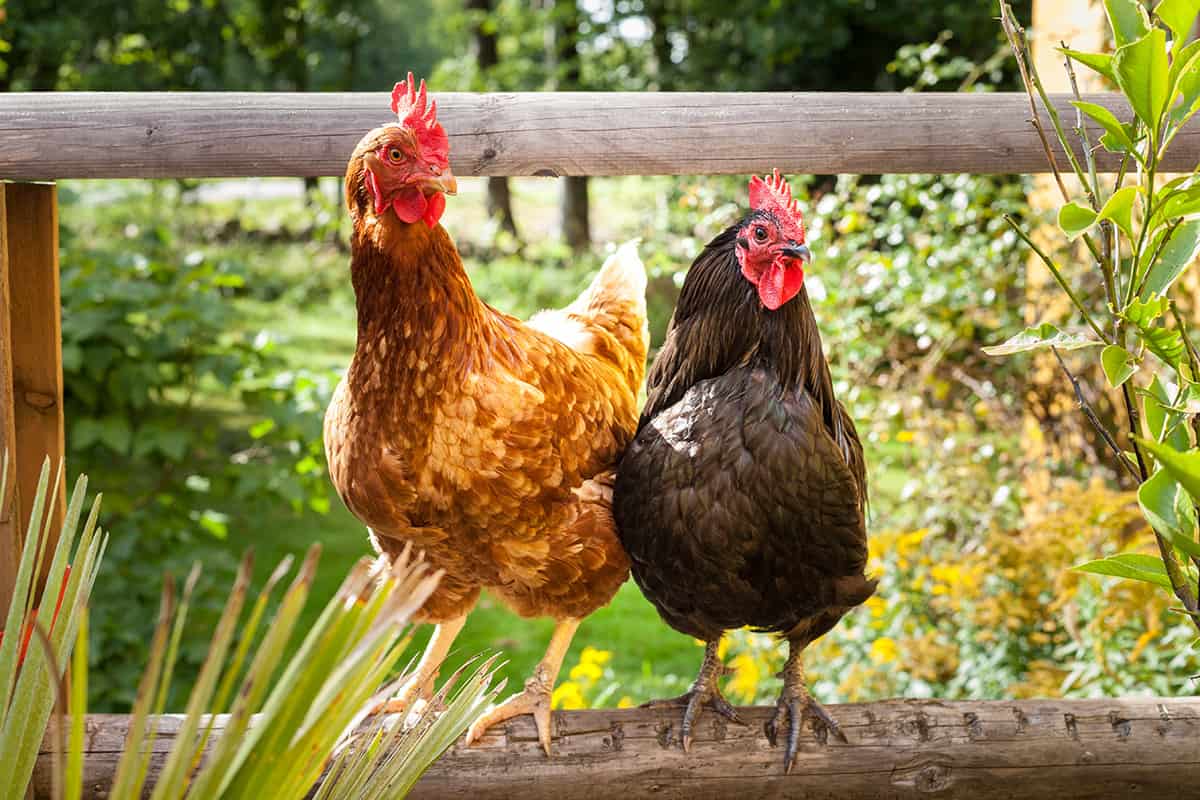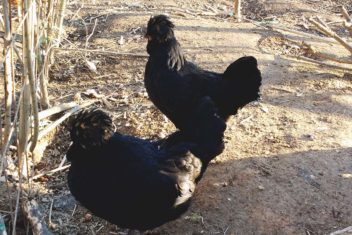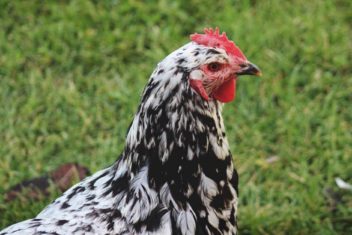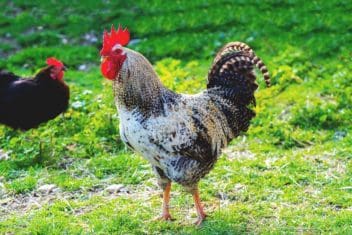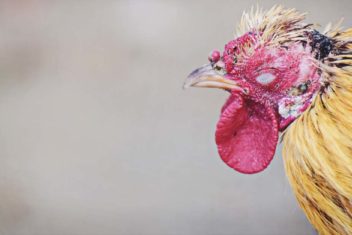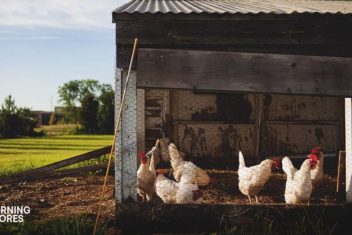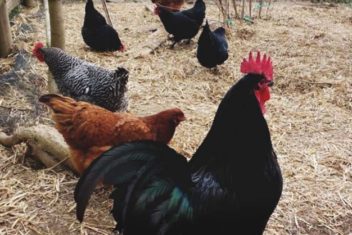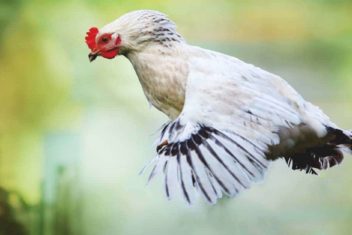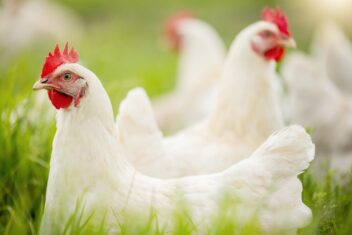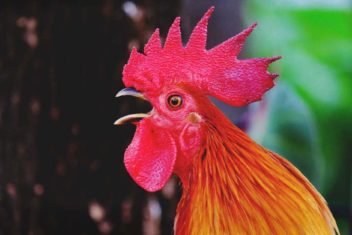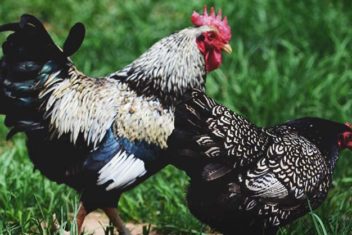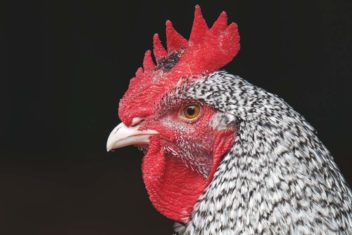Most plants that you include in your garden beds are chicken-safe, and your chickens will feast on them, even if you don’t want them to. However, chicken owners need to be aware of the poisonous plants that could harm their chickens.
In most circumstances, free-range chickens avoid eating poisonous plants, but that doesn’t mean you want to keep the plants nearby. Make sure you never feed these plants to your chickens and avoid growing them in an area that your chickens might be confined.
Ready? Let’s take a look at what poisonous plants your flock needs to avoid.
Does Poisonous Equal Death?
It’s a common misconception that consuming something poisonous leads to death. This isn’t always true.
When we talk about plants that are poisonous to chickens, many cause sicknesses that could potentially make your flock sick or, yes, could eventually lead to death. But not necessarily.
For example, breathing problems from poisonous plants won’t last forever. If your chicken has access to medical care, there is a good chance that she will make it.
Now, that doesn’t mean you want your chickens to eat any of these plants, but understand that if they do consume them, all hope isn’t lost. That doesn’t apply to all plants; some are lethal! And certainly, you want to avoid plants that cause any sort of problem, right? No one wants their poor chicken to get sick.
14 Poisonous Plants Chickens Shouldn’t Eat
It’s always good to know if you have any plants that are poisonous to chickens on your property. Make sure you keep your flock away from these plants to avoid any sicknesses or potential death in your flock.
While they might not all be lethal, you should avoid growing the following plants if you let your chickens free-range on your property.
1. Apricots
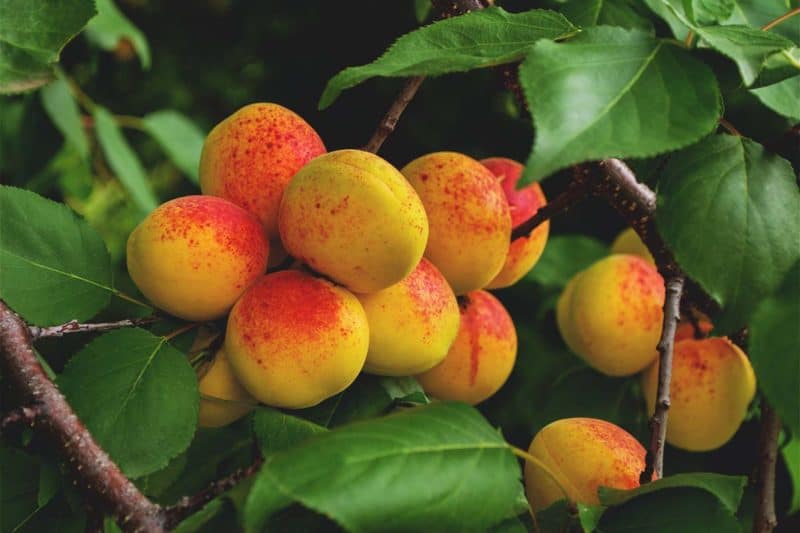
Most fruits are safe for chickens; mine sure love apples. But you should never give pits or leaves from an apricot tree to your flock. They contain glycosides, a toxic compound to chickens that leads to seizures, low blood pressure, and breathing problems.
Growing apricots, if you have chickens, is possible, but make sure you stop them from entering your orchard by setting up a chicken-proof fence.
2. Azaleas
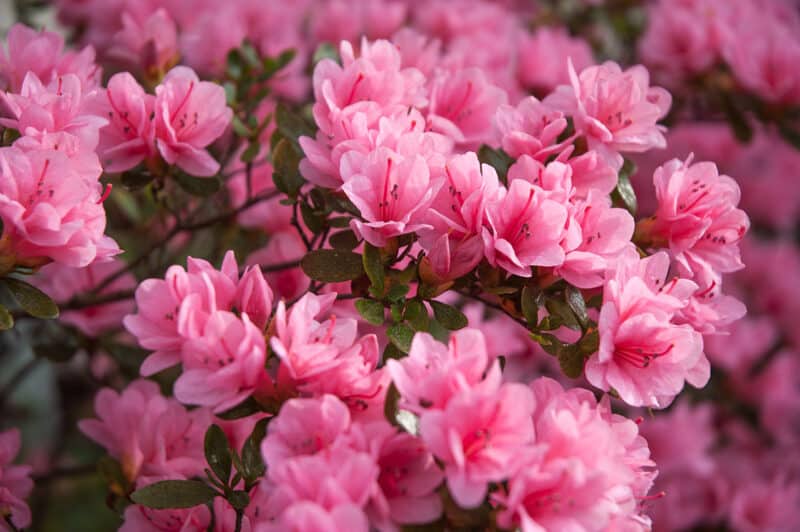
One of the most common flowering deciduous shrubs are azaleas. You can find them in landscaping across the US because they produce intensely colorful flowers in the spring. We used to have over 10 azaleas across the front of our house; they were beautiful!
The problem is that all parts of the azalea plant are highly toxic to your chickens. It leads to stomach problems, overall weakness, loss of coordination, and cardiac damage. Always keep your azalea bushes away from your flock.
3. Beans
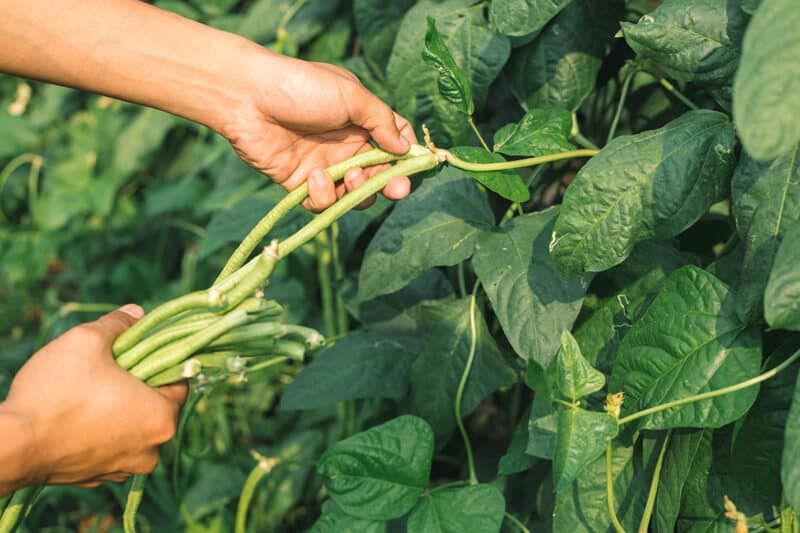
To be honest, this one surprised me. I never thought that beans would be on the list of poisonous plants for chickens, but it turns out that uncooked beans are toxic because they contain hemagglutinin. This is a toxic compound for chickens.
That doesn’t mean you can’t grow beans; I surely do!
But you should keep your chickens out of any gardens that contain beans and never feed your chickens raw or undercooked beans. It is safe to feed them cooked beans, though!
4. Bulb Flowers
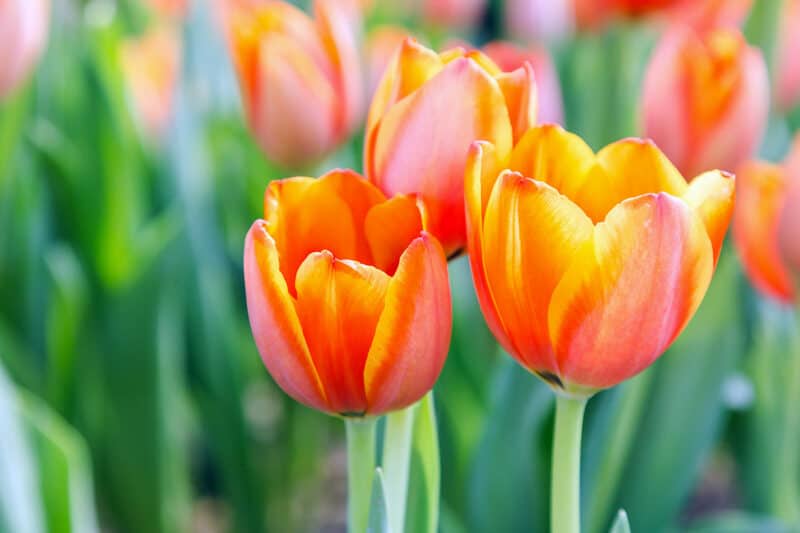
When you think of spring flowers, you probably imagine flowers that bloom from bulbs. Unfortunately, many of these are poisonous plants for chickens. Examples of bulb flowers that your chickens shouldn’t eat include daffodils, iris, tulips, and narcissus.
Why are bulb flowers toxic to chickens?
They contain a chemical called alkaloids that lead to low blood pressure, tremors, and diarrhea. Make sure you plant these flowers far away from the area that your chickens forage.
5. Ferns
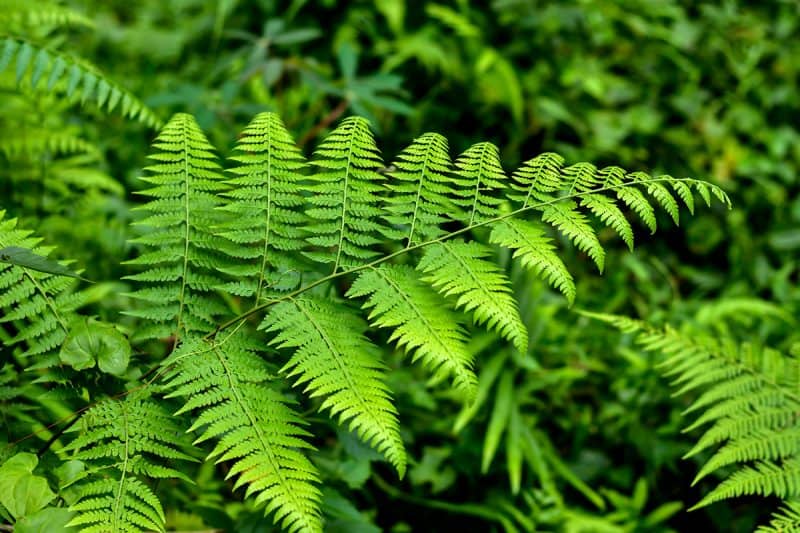
Not all ferns are poisonous plants for chickens, but bracken ferns are toxic. These plants cause anemia, weight loss, and muscle tremors, but typically, chickens have to consume large quantities for that to happen.
The problem with bracken ferns is that they’re a perennial, invasive fern that grows throughout most of the United States. It grows commonly in pastures, forests, and rangelands, so if you have free-range chickens, it’s possible that they’ll come in contact with bracken ferns.
You need to be vigilant and make sure you remove bracken ferns when you find them on your property.
6. Foxglove
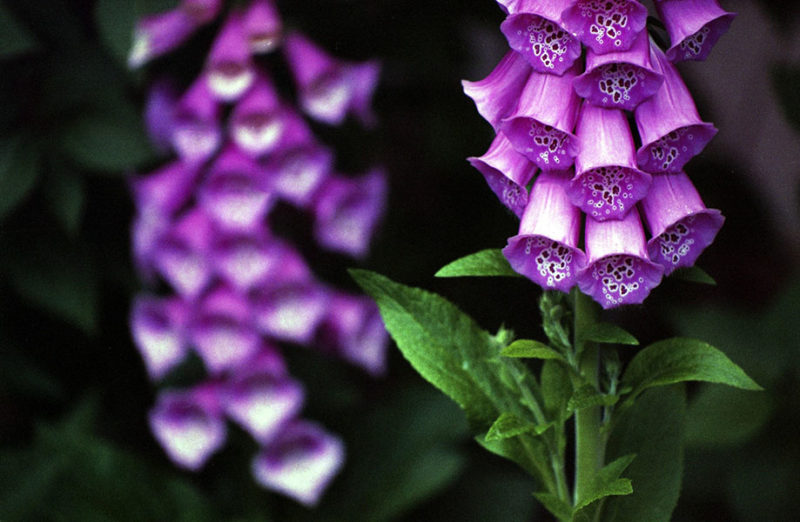
Foxgloves are a perennial or biennial plant that reaches up to 8 feet tall, producing beautiful tubular-shaped flowers with speckled interiors. These flowers bloom in the summer, looking gorgeous in your flower gardens.
There’s one big problem with foxgloves.
The entire plant, including the seeds, flowers, stems, and leaves, are toxic for chickens. Since these plants reseed themselves readily every year, you need to make sure you don’t allow them to grow somewhere your chickens might access them.
7. Holly
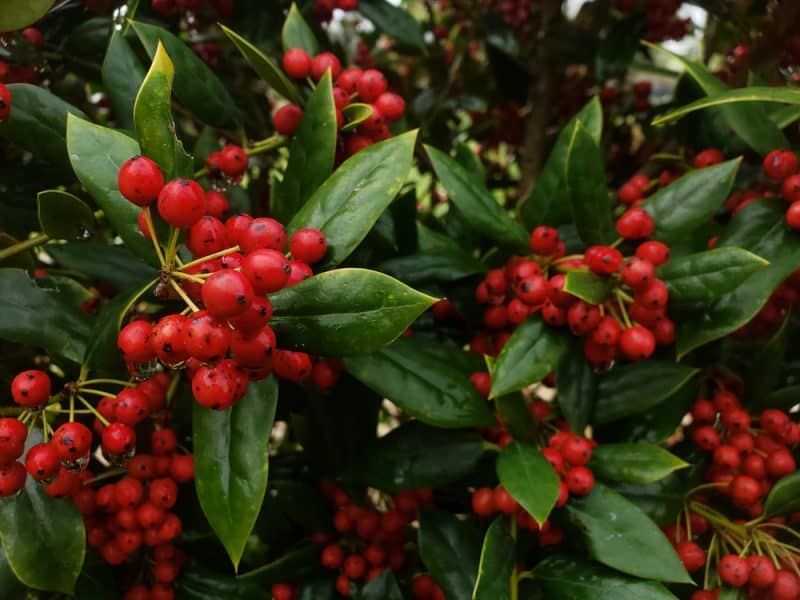
Holly is typically associated with Christmas and decorations, but they grow throughout the United States as a native bush, especially in the Southeastern states. This plant contains low levels of toxic compounds called saponins that cause vomiting, diarrhea, and drooling.
8. Lobelia
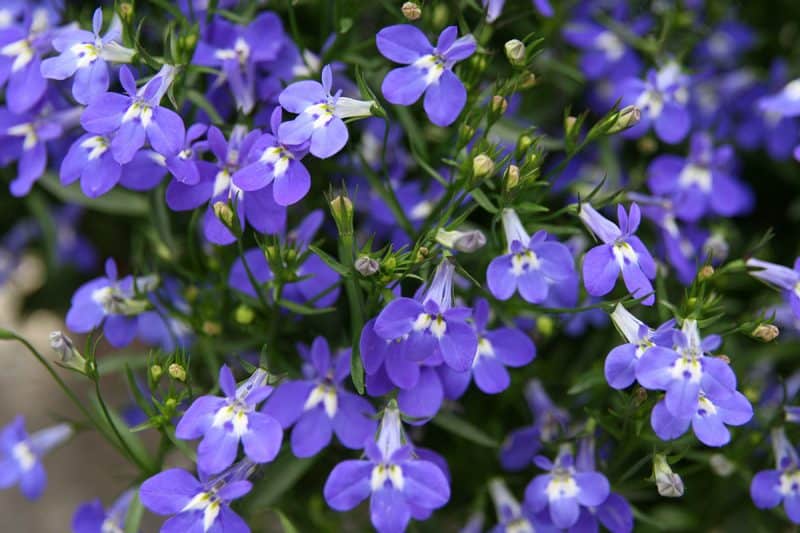
Lobelia is a pretty flower that produces blue, purple, white, or red blooms; it’s commonly found in containers and butterfly gardens. Some are trailing varieties that reach up to three feet long.
Despite its beauty, lobelia contains toxins called pyridine alkaloids, known to cause tremors, weakness, fast breathing rate, and lack of coordination. Keeping your chickens away from these flowers is a good idea if they forage in your flower beds.
9. Lupine
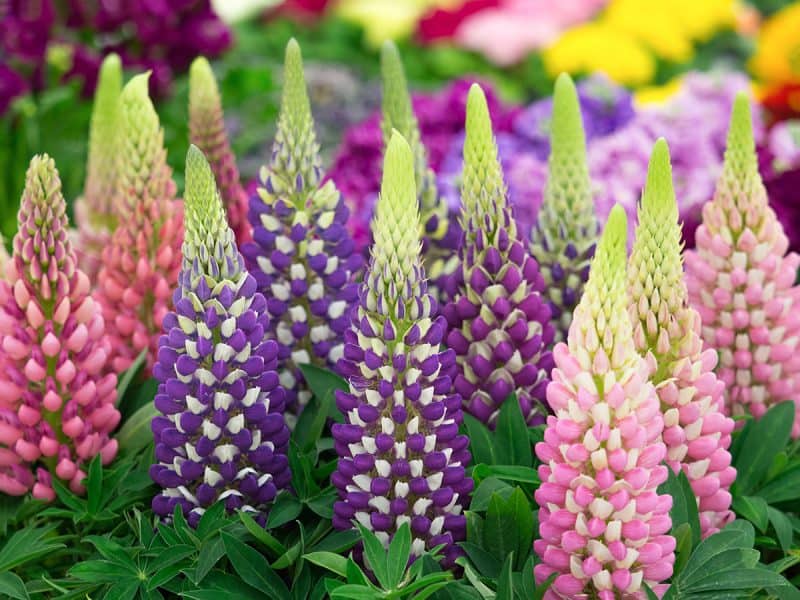
One of my favorite perennials is lupine, which grows up to two feet tall with bonnet-shaped flowers on tall spikes. The flowers typically come in deep blue and purple, but some varieties are white or pink.
All parts of the lupine plants are toxic to chickens because they contain a compound called quinolizidine alkaloids. This toxin causes nervousness, wandering, twitching, and convulsions in poultry.
While lupines are a popular plant in flower gardens, it grows wild in mountainous regions. If you find it growing wild in your area, know that it’s invasive and hard to stop, so keep your chickens away from where it grows.
10. Nightshades
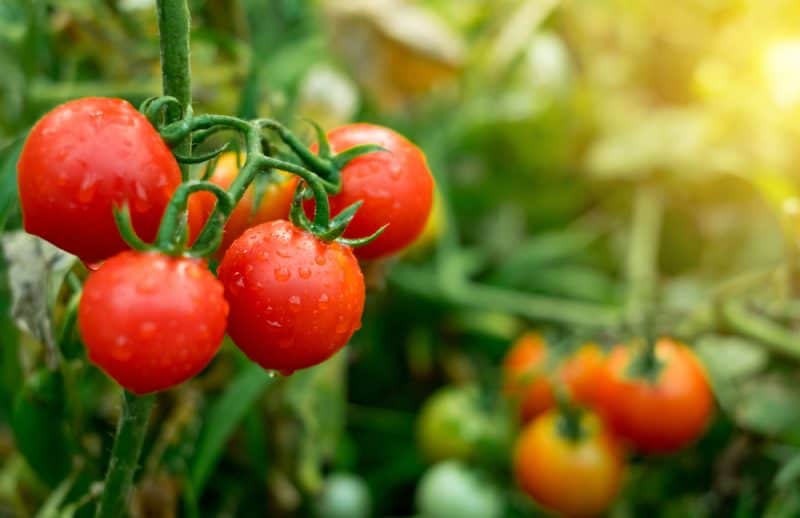
The nightshade family is large with over 70 different plant varieties, including tomatoes, peppers, and eggplants. All nightshade plants contain alkaloids that could cause your chickens to have reduced appetite, increased salivation, weakened heart rate, and trouble breathing.
Now, let’s talk about these poisonous plants for chickens because chances are you’ve given your flock some fruits from these plants.
Tossing a few tomatoes to your flock isn’t going to kill them, but this family shouldn’t be the primary source of treats. Raw potato peels are a no-no chicken treat that you should never give your flock.
Take care to learn about the other nightshade plants that grow in your area. They’re typically identified by their five-lobed white and purple flowers and green fruits that turn yellow or black at maturity.
11. Oak Trees
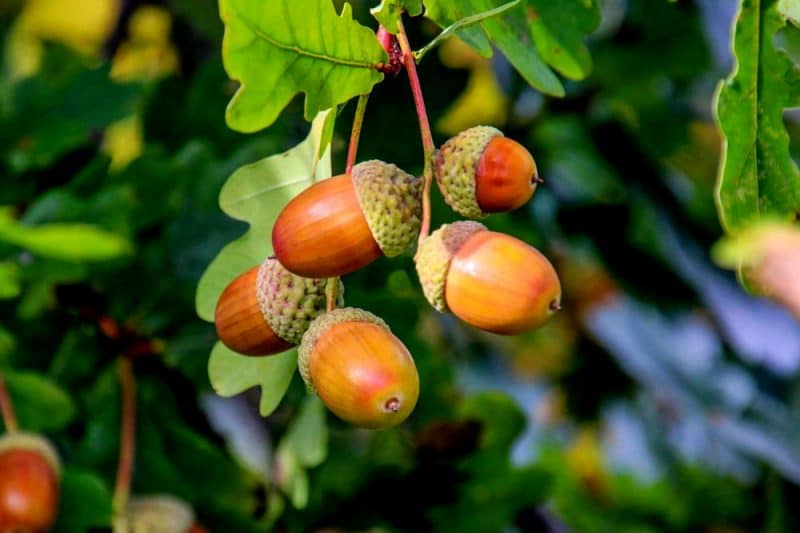
If you have an oak tree on your property, watch out; these are poisonous plants for chickens. Mature oak trees have a canopy that spans around 100 feet wide and 80 feet tall, which means that the leaves spread throughout your property.
Oak leaves and acorns contain tannic acid that leads to a lack of appetite, frequent urination, excessive thirst, and diarrhea. I’m sure your chickens don’t want to experience that, but it’s hard to stop this without cutting down the trees. Try to keep their run away from acorns.
12. Periwinkle
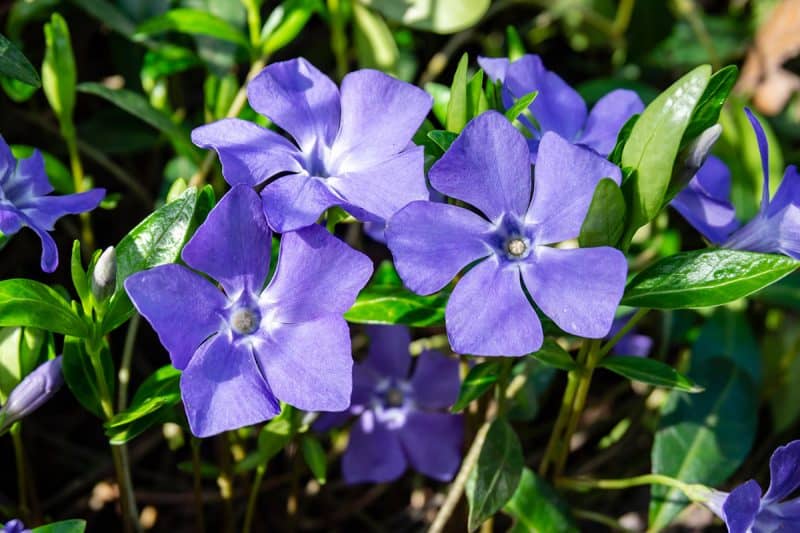
You might know this plant as creeping myrtle, vinca, or periwinkle, but regardless, it’s an adorable ground cover with dark green foliage and blue or white flowers that bloom in early spring. The problem with periwinkle is that it contains glycosides, a toxic compound that leads to tremors, seizures, and even death.
Yes, this plant could cause death, so keep it away from your chickens. Don’t mess around.
13. Rhubarb
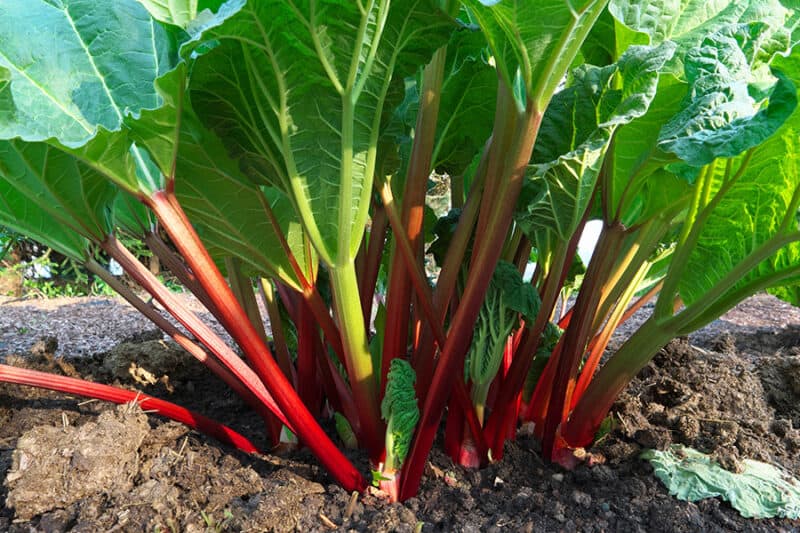
I love rhubarb; it makes for delicious pies and jams in the spring, but rhubarb leaves contain oxalic acid, which is known to be toxic to chickens. If eaten, this plant causes jaundice, tremors, and increased salivation.
Don’t stop growing rhubarb because you have chickens; just prevent access with fencing.
14. Yew
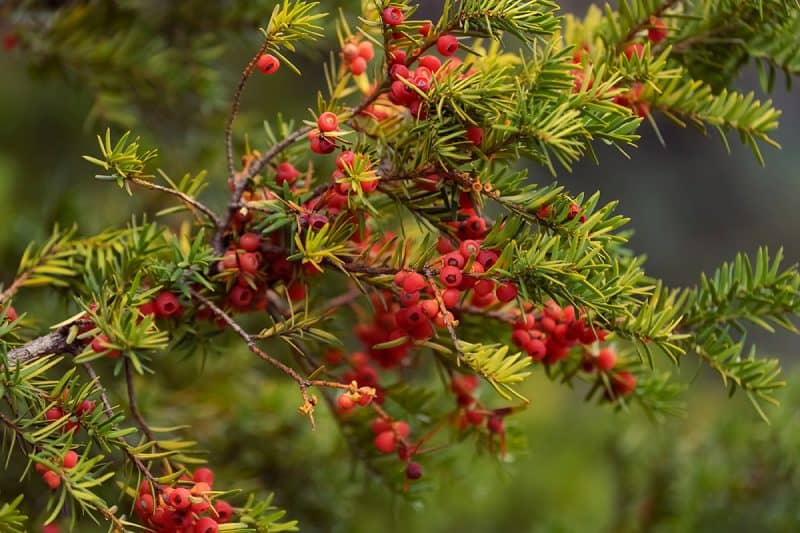
Yew is sometimes called the “Tree of Death” and, with a name like that, you know it’s highly toxic. The Japanese yew is the most common variety in the US, and all parts of this plant are poisonous to chickens.
Yew plants contain cardiotoxic taxine alkaloids that lead to cardiac arrhythmia and death. This compound is fast-acting and consuming small amounts lead to death in your chickens rapidly. It can even kill cows, horses, dogs, and humans.
This is one of the plants that I recommend you remove entirely from your property. While many of the other plants will cause problems, they don’t cause death after small consumption, but yew does.
15. Elderberries
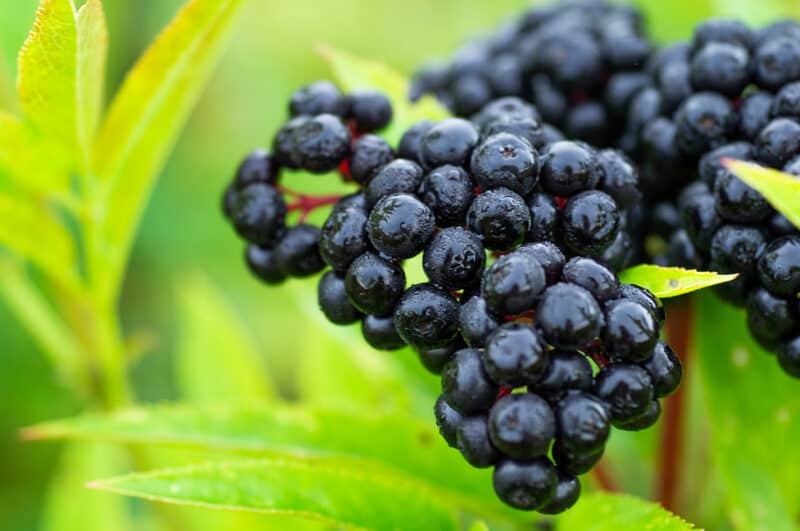
One of the things you might read is that elderberries are toxic for chickens, but that’s not completely true. Elderberries are safe for chickens in moderation. This is a toxic plant, but giving a few berries to your chickens won’t hurt them.
In large amounts, though, it can kill your poultry.
